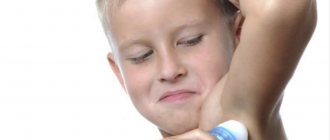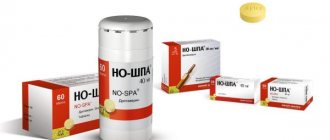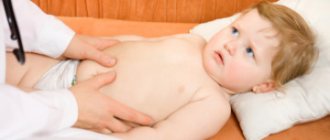How long can acclimatization at sea last?
A child’s acclimatization to the sea may appear on the second day of stay in a new climate. Less commonly, symptoms appear on days 4-5.
Acclimatization lasts 1–2 weeks for children:
- the first 3–5 days are the hardest;
- After 6–7 days you feel better.
If you are traveling with children to a country or area with a different climate, buy trips for at least 14 days. Otherwise, you will spend your entire vacation in a room with a sick child. The longer the trip, the more time it will take to adapt.
Doctor Komarovsky's opinion
The well-known pediatrician Evgeniy Komarovsky claims that the problem of acclimatization is somewhat exaggerated and far-fetched, since for healthy children who, being such, went on a trip with their parents, the period of adaptation to a new environment and climate should not be much complicated.
But the real disaster is threatened by the child’s own parents, who often do their best to stuff the baby with food and fruit when he loses his appetite after a flight, or force him to swim in the sea if he doesn’t want to.
In this video, Doctor Komarovsky will tell you about all the nuances associated with traveling with children, including acclimatization.
Komarovsky emphasizes that when planning a trip, it is important not only to find out where the nearest restaurant, beach and water park will be located, but also to reliably find out whether there will be a clinic nearby in case the child needs a doctor.
If we are talking about a holiday abroad, you need to thoroughly clarify all the issues related to medical insurance, and, if necessary, pay for an additional package of services for a pediatrician.
Evgeniy Komarovsky warns that it is unsafe for babies from birth to 2 weeks of age to travel by plane.
What are the specifics of holidays with children, how does acclimatization go, does it happen to everyone? Dr. Komarovsky will give us answers to these and many other questions in the next cycle of the program.
Stages and symptoms of adaptation
Acclimatization is a natural process that can bring a lot of inconvenience. The smaller the child, the more painfully he tolerates a change of environment. Signs of acclimatization appear suddenly and often immediately in an acute form.
Adaptation stages:
- Start . The reaction starts immediately upon arrival, but on the first day of rest there are still no symptoms.
- Exacerbation . On the second day, symptoms of acclimatization at sea suddenly appear: the child’s body temperature rises, headache, nausea, vomiting, diarrhea, loss of appetite, runny nose, cough. Either signs of ARVI or symptoms of intestinal infection may come to the fore. The child becomes irritable, whiny or, conversely, lethargic and weak. This stage is the most difficult, lasting 2–4 days, then the symptoms subside.
- Feeling better . On the 3rd–4th day the baby feels much better. Elevated body temperature, runny nose, cough persist, but mood and appetite are already improving. The child begins to show interest in the sea.
- Completion . The restructuring of the body is complete, the baby feels good and is ready for recovery.
How to make acclimatization easier for children
During adaptation to new conditions, almost all systems of the body are stressed, and this should not be forgotten. Therefore, provide the baby with the most comfortable conditions possible during this time. For example, adaptation is associated with the change of season - autumn has arrived. Naturally, the baby lacks the light and warmth to which he has become accustomed over the summer. What are your actions? Follow the principles of proper nutrition for children during the acclimatization period, more bright vitamins - orange, pepper, etc., invite the baby to draw a sun, turn on a cartoon about summer, light a fireplace, etc. As soon as the first cold weather arrives, make sure that your baby is dressed for the season so that he does not freeze and does not feel the change in weather conditions. In rainy weather, allow the mischievous child to run through the puddles so that the baby gets a lot of positive emotions.
It is possible to diagnose acclimatization based on its symptoms, but since they are similar to a cold, it is better to consult a specialist. The pediatrician will also help in selecting medications for treatment. Parents must make efforts to create a positive atmosphere and conditions for their child.
As a result, we figured out that acclimatization is a natural reaction of the body that cannot be prevented, but it is quite possible to alleviate the child’s condition. The main reason for adaptation is stress. It is not surprising, because today even the change of seasons does not occur smoothly. Yesterday the baby ran barefoot on the sand, but today she has to put on a warm jacket. A sudden change in weather causes stress in adults, let alone children. The important task of parents is to take care of their child, to support him even in moments of his whims. Acclimatization hardens the baby. Remember this and raise healthy and strong children.
Age characteristics
How a child will feel depends on age. It's hardest for babies under one year old.
Acclimatization in schoolchildren takes 3–5 days, while in preschoolers and infants it can last 7–14 days.
Infants
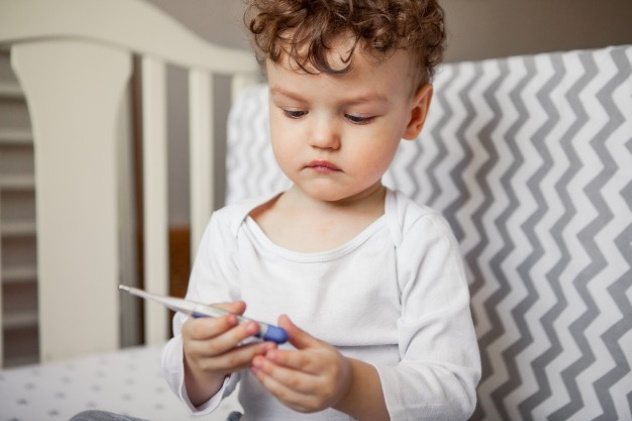
Children should not be taken away from home a year. They don’t need the sea; it will bring neither benefit nor impressions. Climate change is extremely difficult for infants; the temperature rises to 39–40 °C, which may require hospitalization of the baby.
If you decide to relax with an infant, then choose a climate that is as familiar to the baby as possible. You can't go to hot countries.
Preschoolers
Preschool children also experience acclimatization painfully, especially children under 3–4 years of age. They experience the same symptoms as infants.
They cannot be taken on vacation far from home. The maximum you can do is go to Sochi; there can be no talk of Turkey or Egypt. Flying is difficult even for adults, since the climate change is very abrupt, and there is also a large time difference.
Common causes of acclimatization in children
The period of getting used to changes in climate, environment, season, etc. It is difficult for children, especially those under three years of age. You can observe a similar state in your child in the fall, when the usual warm days are replaced by rainy weather. At this time, the time for walking in the fresh air is reduced, you cannot eat ice cream, go to the beach, and so on, but for the baby this is a lot of stress. It is the stressful situation when the baby finds himself in new conditions that is the cause of addiction. The baby may develop a fever, disturbed sleep patterns, vomiting and other unpleasant symptoms. Why do children have a hard time with such changes? The fact is that we, adults, already have a developed immune system, unlike children.
What to do when a child acclimatizes to the sea
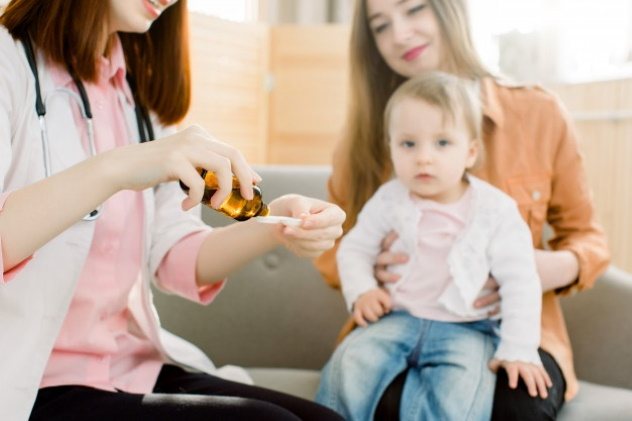
Treatment of acclimatization in children under one year of age should be carried out under the supervision of a doctor, especially if adaptation to the sea is accompanied by high fever, profuse vomiting, and diarrhea.
In other cases, symptomatic therapy is selected. At high temperatures you will need antipyretics; for vomiting, nausea, diarrhea - rehydration solutions, sorbents, and digestive aids. No specific treatment is required; the body copes with the problem on its own.
Standard medications that may be useful for a child during the period of acclimatization and relaxation on the sea coast:
| Problem | Medicine |
| Sunburn and skin irritations | D Panthenol, Bepanten |
| Temperature | Nurofen, Eferalgan, Panadol, Tsefekon (suppositories) |
| Runny nose | Saline solution, Aquamaris, Aqualor - for rinsing and moisturizing. Nazivin is a vasoconstrictor. Pinosol - antiseptic, anti-inflammatory. |
| Otitis | Otinum is an anti-inflammatory and analgesic. |
| Poisoning, diarrhea, vomiting | Smecta, Polysorb, activated carbon - sorbents for removing toxins. Regidron – prevention and treatment of dehydration. Creon is an enzyme preparation that improves digestion. |
Before purchasing and taking, be sure to consult your doctor.
Acclimatization in children: diagnosis and treatment
The hot summer gave way to autumn, and your baby became lethargic, sleeps poorly, and then the temperature has risen. Cold? Or maybe adaptation to the cold season has just begun? To find out for sure, you should visit your pediatrician. Especially when the symptoms have become more pronounced over the course of 1-2 days. If a respiratory disease is confirmed, then treatment of colds in children begins. But when the doctor refutes the diagnosis, then the signs of getting used to new weather conditions are obvious and the doctor will discuss with you an action plan to alleviate the symptoms.
Useful video about traveling with children
Author
Oksana Belokur
Pediatrician
In 2012 she graduated from the Medical Institute of Sumy State University. She received a higher education in the specialty “Pediatrics” and qualified as a doctor. In 2012-2013, there were treatment and preventive activities at the Sumy Regional Children's Hospital. In 2013-2015 worked as a local pediatrician at Children's Clinic No. 2. I am currently on maternity leave. In my free time I do embroidery and knitting, and study English. All articles by the author
I like!
How should a child acclimatize after the sea?
The site for mothers supermams.ru today will talk about how acclimatization after the sea manifests itself in a child.
Many people face a similar situation - seaside holidays, sun and salt baths, clean air, physical activity, delicious fruits and vegetables turn into
a cold or other ailments upon returning home.
What is this and how to resist it?
The content of the article
- Acclimatization: symptoms and coping
Acclimatization: symptoms and coping
Our planet has six main climate zones and each of them corresponds to one or more climate types,
which differ in a variety of atmospheric factors: water and air temperature, air humidity, amount of precipitation, etc.
When traveling “to the sea” you move from the continental zone to the subtropical, tropical or subequatorial zone. Thus, acclimatization after the sea in a small child represents the processes of adaptation of the body to new environmental conditions.
After a few days, the child’s body begins to show physical signs of acclimatization. You may have a headache, disturbed sleep or appetite, or an upset stomach or a cold.
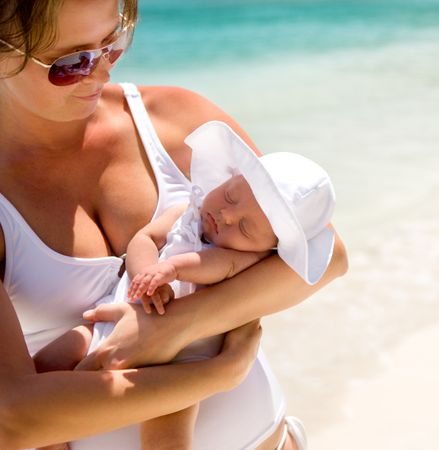
To avoid the intensity and persistence of these symptoms, as well as directly for successful acclimatization after the sea, your child must:
- Think about transport. By plane - quickly, but when traveling by train or bus, or even better (if possible) by car with climate control, a much more gentle climate change will occur.
- Create maximum comfort for the child to gradually get used to new conditions. Let him spend the first couple of days in the shade - this way the body will get used to the air temperature and the sun, and the eyes will get used to the change in lighting.
- Place the child's bed away from the air conditioner and open window.
- Limit the baby's initial contact with other children.
- Allow to sleep more than usual , because during sleep the body’s adaptation is most effective.
- Remember that babies under 3 years of age need a special children's diet, as familiar as possible, so that stress from changing familiar foods is not added.
Acclimatization after the sea in a child
Upon completion of the rest, you should not immediately send your little one to kindergarten, school or different sections, since there is a high probability that he will feel unwell.
Returning home, the child’s body is rebuilt again - the so-called reacclimatization
. Its course can be more complex than during acclimatization, but with the same symptoms.
Our grandmothers and mothers are very familiar with the conservative point of view about how harmful and dangerous acclimatization after the sea is for a small child (up to 3-4 years old). At that time, these were the recommendations of pediatricians.
Today there are also many doctors who consider a baby’s trip to the sea a serious test for a fragile immune system.
Of course, a trip to the sea with a baby is not an easy test for mothers either. This is especially true for traveling with an infant - a separate article is devoted to this on our website supermams.ru.
However, everything depends on your desire, preparedness, awareness and attention. After all, non-compliance with the main rules of behavior on this trip accounts for most of the negative consequences of a holiday at sea.
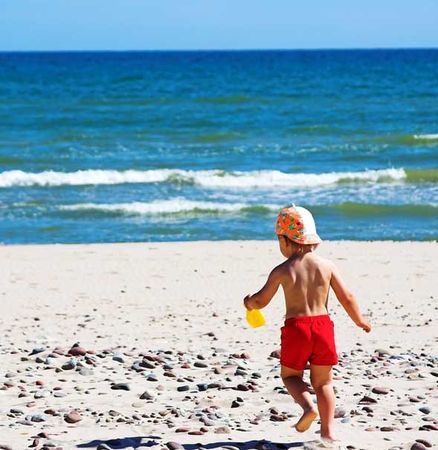
Methods to facilitate reacclimatization
Be that as it may, you can avoid such a phenomenon as acclimatization after the sea in a child, in any case, you can actually reduce its manifestations to a minimum. To do this, you need to be more attentive to the child’s health.
We should not forget that returning home causes the same stress for the body as a trip to the sea, and return acclimatization will require the same time and the same gentle conditions,
as upon departure.
Acclimatization lasts from a week to 10 days. Thus, it must be taken into account that a trip that lasts less than two weeks will ensure that acclimatization and re-acclimatization will follow each other without interruption.
This will definitely not benefit your immune system or your health.
To effectively acclimatize your child after the sun and sea, also try to minimize stress from a change of environment.
Remember that for the baby the main “familiar environment” is the hands of the parents.
In addition, it will be necessary to pay attention to the regime and carefully rebuild it.
When changing time zones, your baby may need to be fed and put to bed later or earlier.
In the first month after a holiday at sea, your baby needs to be protected as vigilantly as at the beginning of your holiday. Only in this way will the chance of consolidating the healing effect increase significantly, and your child will not get sick until the next trip.
We hope that now your child’s fear of acclimatization after the sea will not force you to give up a wonderful sea holiday with your family!
_ _ Website supermams.ru – Supermoms
Share useful:
- 1
- 1
(No ratings yet)
Possible reasons
If a child vomits at sea, what to do can only be understood after finding out the cause of the illness. The gag reflex is a natural reaction of the human body to foreign toxins or toxic metabolic products entering the gastrointestinal tract. This is not an independent disease, but only a symptom indicating disturbances in the functioning of a small organism.
There are several most common reasons that cause vomiting during a baby’s stay at a seaside resort. They are caused by the specifics of summer holidays: high ambient temperatures and high humidity, being in crowded places, and a change in the usual environment. A relaxing atmosphere often leads to parents ignoring the principles of proper nutrition, and instead of home cooking, the basis of the children's diet is chips, crackers, ice cream, cotton candy and corn. A weak child’s body may not be able to cope with so many provoking factors.
Food poisoning
Poisoning at sea in a child is the first thing to suspect when vomiting suddenly appears. If the malaise is caused by consuming low-quality or stale products, the following symptoms will be present:
- nausea;
- stomach ache;
- diarrhea;
- the presence of undigested or poorly digested food in the vomit.
The incubation period ranges from 2 hours to several days after consuming a low-quality product. It is advisable to find out which ingredient caused this reaction in the body and submit it to the laboratory for testing.
The effects of mild poisoning may go away on their own within a few days. But, if the baby’s condition does not improve within 24 hours, you should definitely call a doctor. Therapy should be immediate if there is a high body temperature, vomiting has become uncontrollable, and the frequency of bowel movements is 10-15 times a day.
In an infant, the symptoms of food poisoning will be more pronounced. He may develop a fever and develop a fever. An ambulance must be called immediately.
Sea water poisoning
The high concentration of salt in seawater makes it unsuitable for consumption. Despite parental prohibitions, a baby can still swallow sea water - intentionally or accidentally, while swimming and playing on the coast. In this case, vomiting in a child without fever will be accompanied by the following symptoms:
- sudden loss of strength;
- lethargy;
- diarrhea;
- sore throat;
- paleness of the skin.
Symptoms most often occur in children under 3 years of age. The incubation period can reach 10–14 days.
Bacterial or viral infection
A large gathering of people on the beach increases the risk of a child contracting a virus or bacterial infection. In this case, the symptoms will be similar to the clinical manifestations of food poisoning. These diseases can be distinguished by the following characteristics:
- The duration of the incubation period is up to 2 days for poisoning, and up to 2 weeks for infection.
- Body temperature – during poisoning, it increases slightly (37–39), then gradually decreases. With a bacterial or viral infection, the indicator gradually increases to high values (40 and above) 2–3 days after infection.
- Total duration of illness. If the disease is caused by eating poor quality food, the symptoms disappear within 2–3 days. Bacterial and viral infections last much longer - up to 2-3 weeks.
The disease can only be accurately diagnosed in a hospital setting.
Sun or heatstroke
Exposing your baby to the sun for a long time can lead to heatstroke. This condition occurs when the body is severely overheated; sunstroke is a particular manifestation of it.




